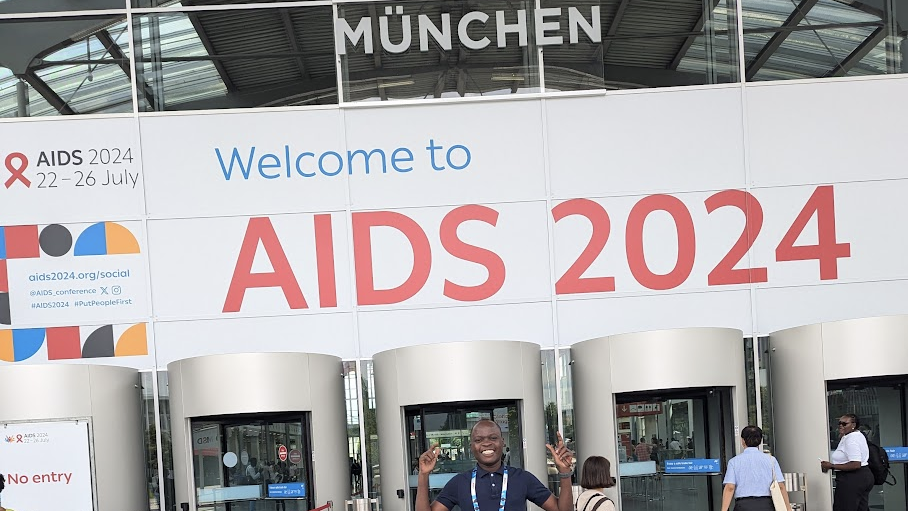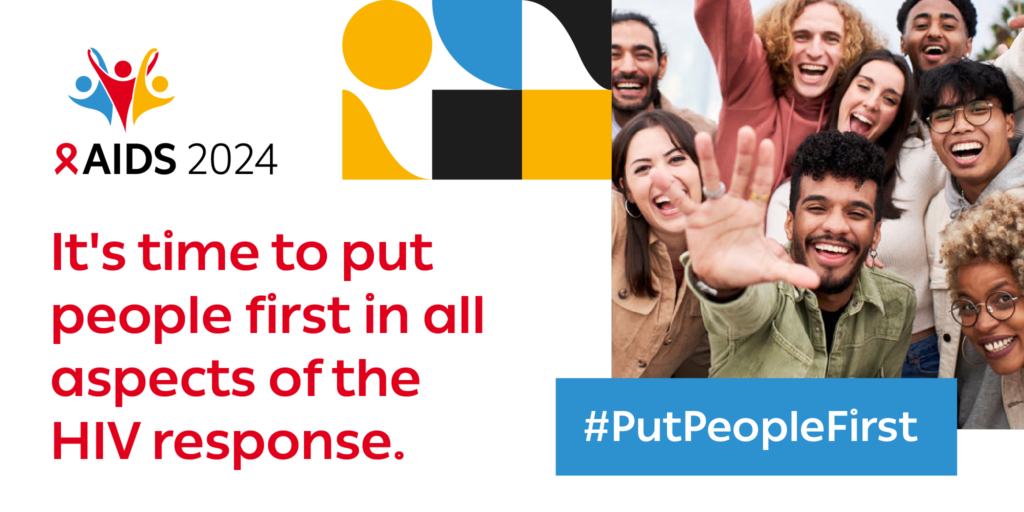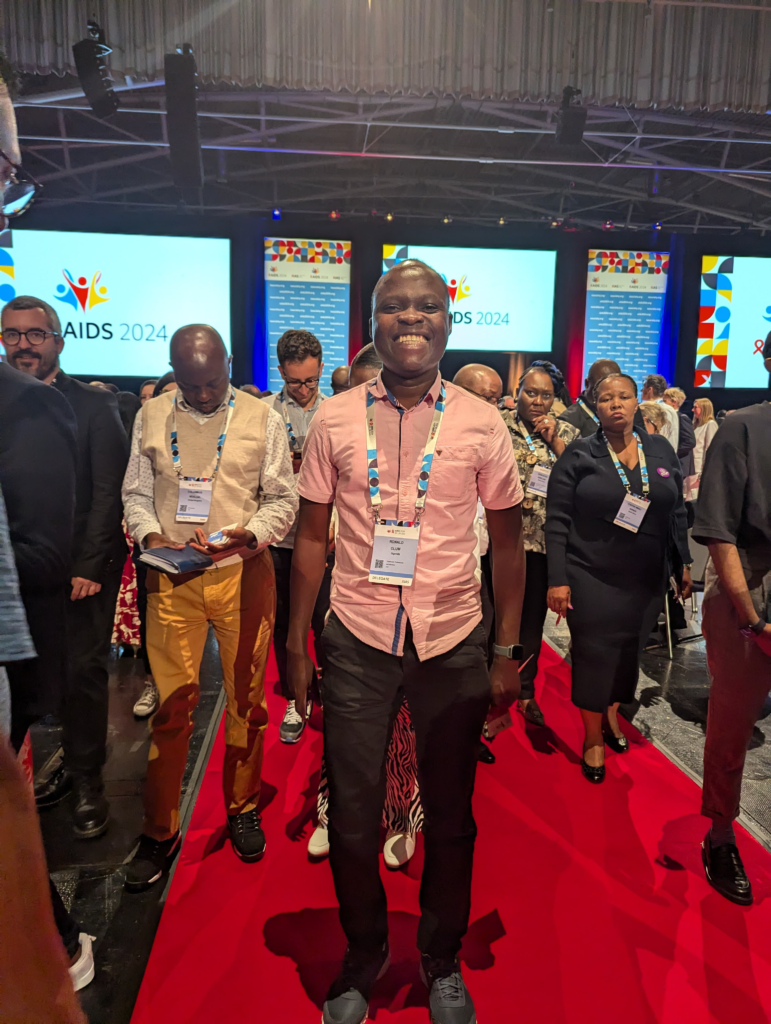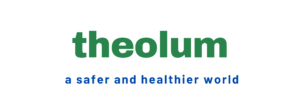
Last week, I attended the AIDS 2024 Conference, organized by the International AIDS Society (IAS) in Munich, Germany. The conference, which is the largest global event for HIV science and advocacy, brought together over 10,000 people, including healthcare workers, researchers, community leaders, and those living with HIV/AIDS. Arriving in Munich after a 14-hour flight through Addis Ababa (Ethiopia), I was excited to engage in the lively exchange of ideas, networking, and cultural experiences.
This year’s theme, Put People First, closely aligned with the 2023 World AIDS Day Report, Let Communities Lead. It also set the tone for an event that emphasized the critical role of communities in shaping the future of the HIV response.

Pre-Conference
The conference commenced with two days of pre-conference activities at the International Congress Centre, Munich. On the first day, I attended and participated in an engaging discussion on the recently published JAIS Supplement on implementation science and the HIV response. This session was moderated by my mentor, Prof. Elvin Geng, the Director of the Center for Dissemination and Implementation at Washington University in St. Louis. Distinguished scholars from around the world presented on diverse topics, from innovative HIV-testing strategies to adaptive PrEP service delivery and the future of long-acting antiretroviral therapy.
On the second day, I had the honour of presenting our ongoing community-led HIV self-testing model targeting adolescent girls and young women in Northern Uganda. This presentation took place at a side event organised by Gilead Sciences as part of their Research Scholars Program. I also received a certificate as one of the five awardees of the Gilead Research Scholars Program, which supports emerging investigators in conducting cutting-edge research and developing into independent researchers. These pre-conference experiences set a positive tone for the days ahead, filled with learning and networking opportunities.
AIDS 2024 Conference
The main conference spanned five days, each packed with a rich array of sessions covering various aspects of HIV research, policy, and advocacy. The opening ceremony featured powerful speeches from IAS former president Sharon Lewin, UNAIDS Executive Director Winnie Byanyima, and German Chancellor Olaf Scholz. Each speaker emphasized the urgent need to meet the UNAIDS 95-95-95 targets by 2030 amidst multiple crises that threaten the progress made, including in Ukraine, Sudan and Gaza. The unified message was clear: achieving these goals is possible, but it requires sustained investment and a commitment to equitable access to HIV services for all, including marginalized populations.
… And end the discrimination faced by girls and women that is driving the AIDS pandemic especially in Africa. 3 out of 4 newly infected young people (ages 15–24) are girls, one is a boy. There is an injustice there. We must deal with the vulnerability of girls and young women.
Winnie Byanyima, UNAIDS Executive Director.
Throughout the conference, there was a strong emphasis on #PuttingPeopleFirst, which was evident in many discussions and presentations. Speakers reiterated the critical role of community-led programs in the HIV response, advocating for more inclusive and people-centred approaches. The conference provided an open platform for protests and advocacy, which is unusual at such events. The protests addressed ongoing challenges and disparities in the global HIV response, emphasizing the need for continued advocacy and grassroots mobilization. This added a dynamic dimension to the conference, reminding attendees of the real-world implications of the policies and research being discussed.
Major Highlights
Two major highlights of AIDS 2024 were the announcement of the “Next Berlin patient” and the results of the PURPOSE 1 trial. The “Next Berlin patient” refers to the seventh person to be cured of HIV through a stem-cell transplant, a milestone that was met with a standing ovation. Additionally, Dr. Linda-Gail Bekker revealed the findings of the Phase III PURPOSE 1 trial conducted in South Africa and Uganda among cisgender adolescent girls and young women. Published in the New England Journal of Medicine, the study demonstrated that twice-yearly injections of lenacapavir were highly effective in preventing HIV, with zero infections reported among participants. This breakthrough has been widely applauded and welcomed, including by the World Health Organization.
If approved and delivered – rapidly, affordably, and equitably – to those who need or want it, this long-acting tool could help accelerate global progress in HIV prevention. We all owe a debt of gratitude to the thousands of young women in South Africa and Uganda who volunteered to be part of this study
Sharon Lewin, IAS President
Five Key Takeaways:
- Putting people first: The path to ending the HIV epidemic lies in prioritizing individuals and communities in all response initiatives. It is crucial to ensure that the voices and needs of those most affected by HIV are at the forefront of decision-making processes.
- Community-led solutions: Communities are not just stakeholders but should be the backbone of the HIV response. They possess unique insights into their own challenges and are best positioned to lead initiatives that effectively address these issues.
- Equitable access to innovation: Innovations in HIV treatment and prevention are only meaningful if they reach everyone, particularly those in marginalized and underserved populations. There is a pressing need to bridge the gap between scientific advancements and their accessibility.
- Financing: The fight against HIV requires substantial and sustained financial investment. This funding is essential for supporting research, expanding access to treatment, and developing infrastructure that can support comprehensive HIV services.
- Global safety and solidarity: The conference emphasized a crucial truth: ‘No one is safe until everyone is safe.’ This global health crisis demands a unified response, with countries and communities working together to ensure that no one is left behind.
I also had a rare opportunity to meet and talk to Prof. Françoise Barré-Sinoussi, a co-recipient of the 2008 Nobel Prize for her role in the discovery of HIV. Beyond the conference, I explored Munich, visiting iconic sites like the English Garden, Marienplatz Square, and Allianz Arena.



Thank you for reading my reflections. In the coming weeks, I will share my thoughts on key topics in global health that interest me. If you’d like to stay updated on these developments, please subscribe to my newsletter and follow me on social media.


Very insightful reflections Ronald. The evolution of the HIV pandemic is a great case study of maintaining human momentum in solving existential challenges even when they seize to be the shiny objects in the moment.
Many thanks Dr. Olum for this in depth information about what transpired at the AIDs 2024 conference and for breaking it down so concisely and precisely.
As an advocate for the AGYW’s in Northern Uganda, I am very much impressed.
Well disseminated and straight to the point overview. Thank you very much Dr. Olum.
#No one is safe until everyone is Safe.